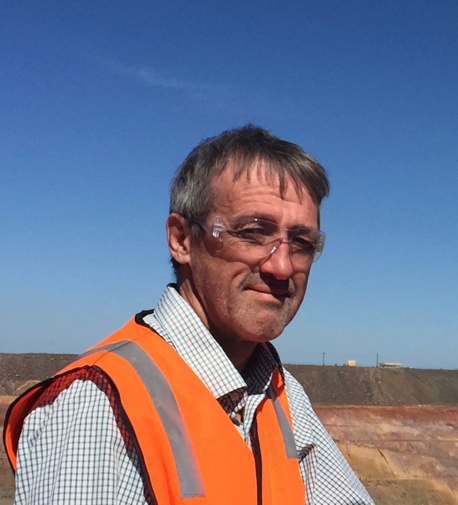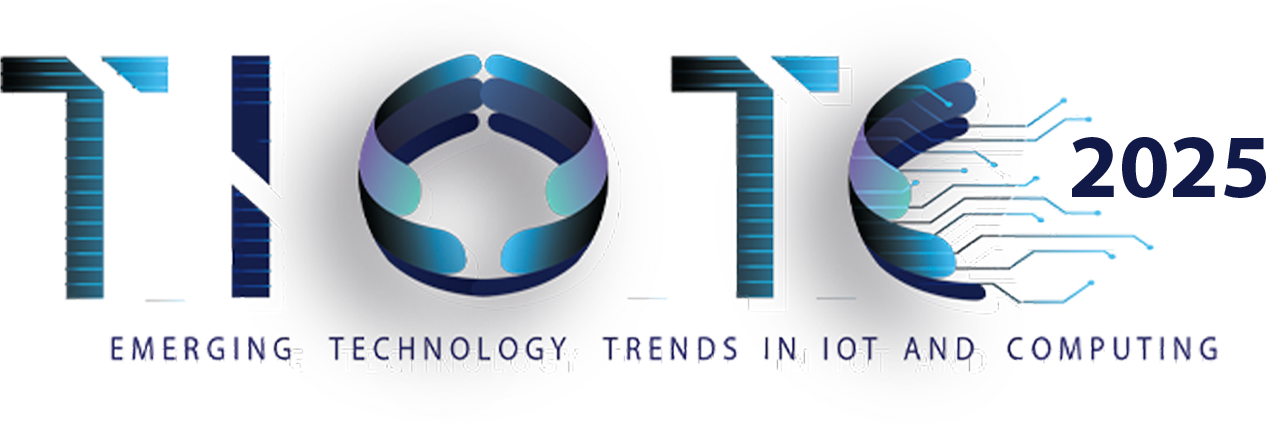One of the highlights of the upcoming TIOTC 2025 conference is the lineup of esteemed keynote speakers who will be sharing their insights and experiences on the latest trends and developments in the field. These experts are at the forefront of their respective areas, and their presentations will provide attendees with valuable information and inspiration. Among the keynote speakers at the conference, you can expect to hear from..

Professor Steve Hall, Australia
Former Dean of Engineering and Technology at CQ University, Queensland, Australia
Title: Focusing innovation in support of national industry priorities
Steve Hall commenced as Dean of the School of Engineering and Technology at CQU in May 2019. The rapidly expanding School has over 275 staff and over 5000 students with campus infrastructure across Queensland and Australia. Our courses extend from Certificate Level II to PhD and are offered both on campus and online.
Steve was the Director of Curtin University’s Western Australian School of Mines from 2010 until early 2016. This involved responsibility for multiple campus delivery of programs in applied geology, spatial sciences, exploration geophysics, mining engineering and metallurgical engineering to over 3,000 students.
Prior to joining CQU, Steve was the Executive Director of Mining Education Australia (MEA). In this role, Steve continued working for Curtin University between 2016 and 2019; MEA being a collaborative venture in curriculum development and delivery involving four partner Universities (New South Wales, Queensland, Adelaide and Curtin).
Steve has extensive international experience of mining and mining education, including assisting with establishment of a new School of Geology and Mining at The University of Rwanda. Steve devised and developed the first MOOC dedicated to mining in 2014-2015. The “Business of Mining” MOOC has since enrolled more than 15,000 students from over 160 countries. Steve has been more recently involved with the new UNESCO Centre for Competence in Mining Engineering Education, based in St. Petersburg, Russia.
Australia is ranked 23rd in the Global Innovation Index (GII) in 2024. The ranking is based upon seven underlying innovation pillars, including business and market sophistication. Knowledge-intensive employment and University-industry R&D collaboration are important examples of indicators used to measure business sophistication. Finance for start-ups and venture capital received are indicators of market sophistication. Australia scores well in the first indictor, but poorly in the second. The presentation will look at some recent Federal Government strategic initiatives to improve innovation in six key industrial sectors – advanced manufacturing; cybersecurity, food and agribusiness, medical technologies and pharmaceuticals, mining equipment, technology and services (METS) and oil, gas and energy resources.

Prof. Dr Panos Liatsis , Department of Computer Science, Khalifa University of Science and Technology, Abu Dhabi, UAE
Email: panos.liatsis@ku.ac.ae
Title for Talk : A Robust AI perspective on securing IoT systems
Dr. Panos Liatsis is a Professor of the Department of Electrical Engineering and Computer Science at Khalifa University Prior to joining Khalifa University, he was Professor of Image Processing and Head of the Department of Electrical and Electronic Engineering at City University of London.
Dr. Liatsis’ research interests include machine learning, pattern recognition, and computer vision, with applications in biomedical image and signal processing, security, and intelligent transportation systems. He published over 200 research contributions in high-impact factor journals, books and international conference proceedings. He is on the editorial boards of international journals and a member of the International Program Committees of international conferences in the fields of image processing, machine learning and intelligent systems.

Assoc. Prof. Dr Dr. Alexei Lisitsa, Department of Computer Science, University of Liverpool, UK
Email: A.Lisitsa@liverpool.ac.uk
Title for Talk Privacy-preserving data processing: past, present, future.
Dr Alexei Lisitsa has graduated in Mathematics from Moscow State University (1987). In 1987-1999 he has been a researcher in a Program Systems Research Institute of Russian Academy of Sciences. His PhD thesis (Russian Academy of Science, 1997) was on descriptive complexity and definability in AI and Database Theory. In 1999-2000 Alexei was a postdoc researcher in Computer Laboratory, Cambridge and since 2001 he is affiliated with the University of Liverpool.
Currently Dr. Alexei Lisitsa is a Lecturer in the Department of Computer Science and the Head of Verification group. His research concerned with three interrelated areas: methods for automated verification, specifically for infinite state and parameterized systems, automated reasoning with applications to verification and mathematics, computer security.
He has published more than 100 research papers. Alexei is a founding chair and member of Steering committee of the VPT workshop series on Verification and Program Transformation, seven editions of which have been held annually affiliated either with CAV, ETAPS or <Programming> conferences. 8th edition of VPT will be at ETAPS 2020, Dublin, Ireland, April 2020. Alexei was Invited Expert to SC^2, 2017-2018, Satisfiability Checking and Symbolic Computation Project (Horizon 2020), and is Principal Investigator for recently secured KTP (Knowledge Transfer Partnership) project on secure data processing and blockchain based technologies.

Prof. Dr Abir Hussain Department of Electrical Engineering, University of Sharjah, Sharjah, United Arab Emirates
Email: abir.hussain@sharjah.ac.ae
Title for Talk: Towards Autonomous Machine Learning: Evolution of AutoML, Roles of Humans, and Related Topics
Abir Hussain is a professor of Biomedical Science and a member of the Applied Computing Research Group at the Faculty of Engineering and Technology.
She completed her PhD study at The University of Manchester (UMIST), UK in 2000 with a thesis title Polynomial Neural Networks for Image and Signal Processing. Prof. Dr. Abir Hussain has published numerous referred research papers in conferences and Journal in the research areas of Neural Networks, Signal Prediction, Telecommunication Fraud Detection and Image Compression.
Prof. Dr. Abir Hussain has worked with higher order and recurrent neural networks and their applications to e-health and medical image compression techniques. She has developed with her research students a number of recurrent neural network architectures. Her research has been published in a number of high esteemed and high impact journals such as the Expert Systems with Applications, PloS ONE, Electronic Letters, Neurocomputing, and Neural Networks and Applications. Prof. Dr. Abir Hussain is one of the initiators and chairs of the Development in e-Systems Engineering (DeSE) series, most notably illustrated by the IEEE technically sponsored DeSE International Conference Series
